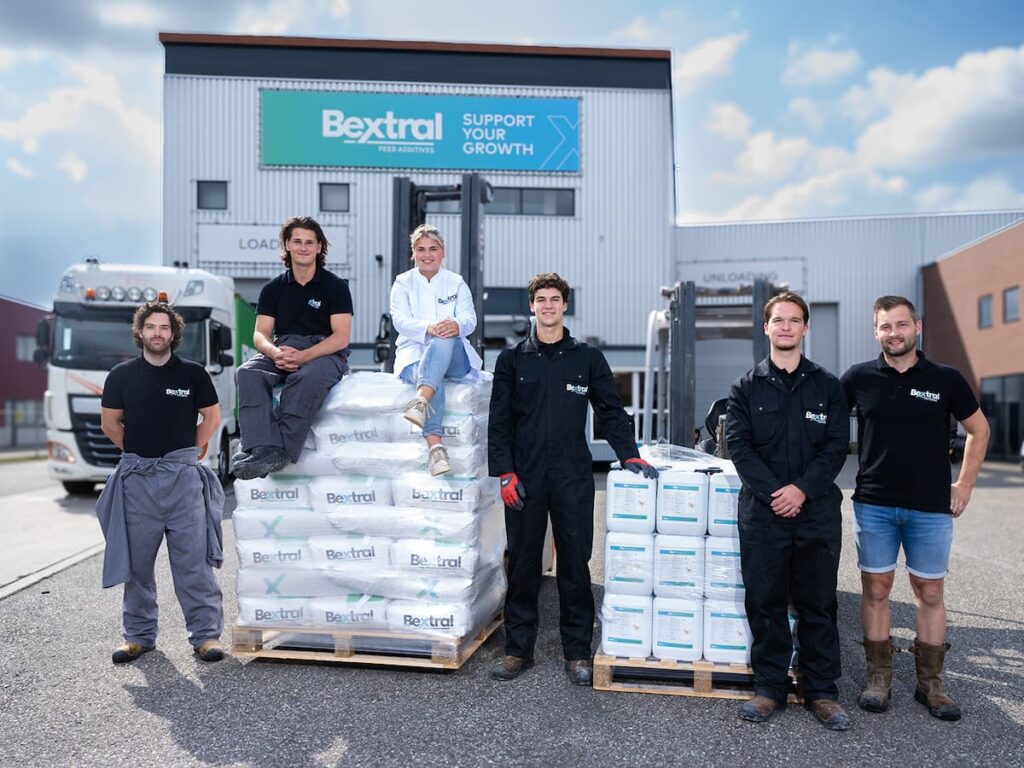Technologies
Emulsifiers
Emulsifiers in Livestock Nutrition Improving Fat Digestion and Nutrient Absorption
In livestock production, emulsifiers are used to improve the digestion and absorption of dietary fats, which are essential for animal growth and performance. Fats are difficult to digest due to their water-insoluble nature, making emulsifiers crucial in breaking down fat molecules into smaller, more absorbable forms. There are two main types of emulsifiers used in animal feed: technical emulsifiers and natural emulsifiers. While both serve to enhance fat digestion, natural emulsifiers, particularly lysolecithins, offer significant advantages in terms of nutrient absorption and overall nutrient efficiency.
Technical Emulsifiers
Technical Emulsifiers: Widely Used, Limited in Performance
Technical emulsifiers are synthetic compounds commonly used to improve the digestion of dietary fats in animal feed. These emulsifiers work by dispersing fat molecules into smaller droplets, making them easier for the digestive system to break down. While effective to some degree, technical emulsifiers tend to have limited functionality within the gastrointestinal tract (GIT).
Mechanism of Action
Technical emulsifiers primarily act by lowering the surface tension between fats and water, creating an emulsion that allows for better interaction between fat molecules and digestive enzymes. This helps in the initial digestion of fats but may not always translate into improved nutrient absorption throughout the entire digestive tract.
Limitations in the GIT
Technical emulsifiers often do not work as efficiently within the small intestine, where nutrient absorption occurs. As a result, fat digestion may be incomplete, leading to suboptimal feed conversion ratios (FCR) and reduced animal performance. Moreover, technical emulsifiers may not support the absorption of fat-soluble vitamins as effectively, which are critical for immune function and growth.
Natural Emulsifiers
Natural Emulsifiers: A More Effective Approach
Natural emulsifiers, such as lysolecithins, are derived from natural sources like soy. Unlike technical emulsifiers, lysolecithins are more effective in the gastrointestinal tract, particularly in the small intestine, where fat digestion and nutrient absorption are most critical. They play a key role in ensuring the efficient breakdown of fats and the absorption of nutrients.
Hydrolyzed Soy Lecithin (Lysolecithin)
Hydrolyzed soy lecithin, or lysolecithin, is a highly effective natural emulsifier that enhances the digestion and absorption of dietary fats. Lysolecithins improve the formation of micelles, which are small fat droplets that increase the surface area available for lipase enzymes to act upon. This process allows for more efficient fat breakdown, leading to better energy utilization and overall animal performance.
Superior Performance in the GIT
Compared to technical emulsifiers, lysolecithins work more effectively throughout the entire digestive tract, particularly in the small intestine. By promoting better fat emulsification, lysolecithins support the absorption of fat-soluble vitamins (A, D, E, and K), which are crucial for growth, immunity, and reproductive health in livestock.
Improved Nutrient Efficiency
The use of lysolecithins leads to improved nutrient absorption, allowing animals to extract more energy and nutrients from their feed. This not only enhances growth rates but also improves feed efficiency, reducing feed costs while maintaining or improving animal performance.
improved overall health
Conclusion
While both technical and natural emulsifiers play an important role in livestock nutrition, lysolecithins, such as hydrolyzed soy lecithin, provide a more efficient solution for improving fat digestion and nutrient absorption. Their superior performance in the gastrointestinal tract, especially in the small intestine, makes them a valuable tool for livestock producers looking to improve nutrient efficiency and optimize feed conversion. By incorporating natural emulsifiers like lysolecithins, farmers can ensure better overall animal health and productivity.
CONTACT US
We are happy to help you

CONTACT INFORMATION
marketing@bextral.com
+31 (0) 85 760 2997
